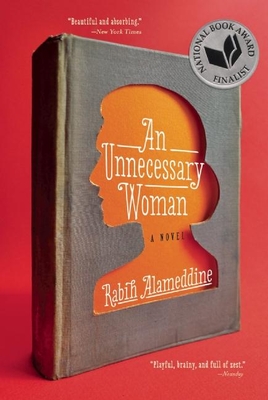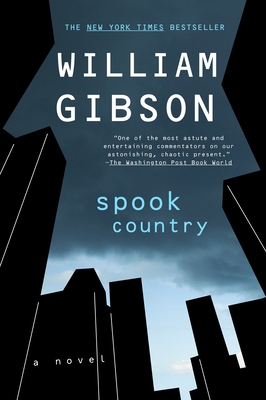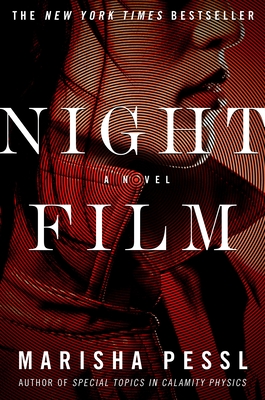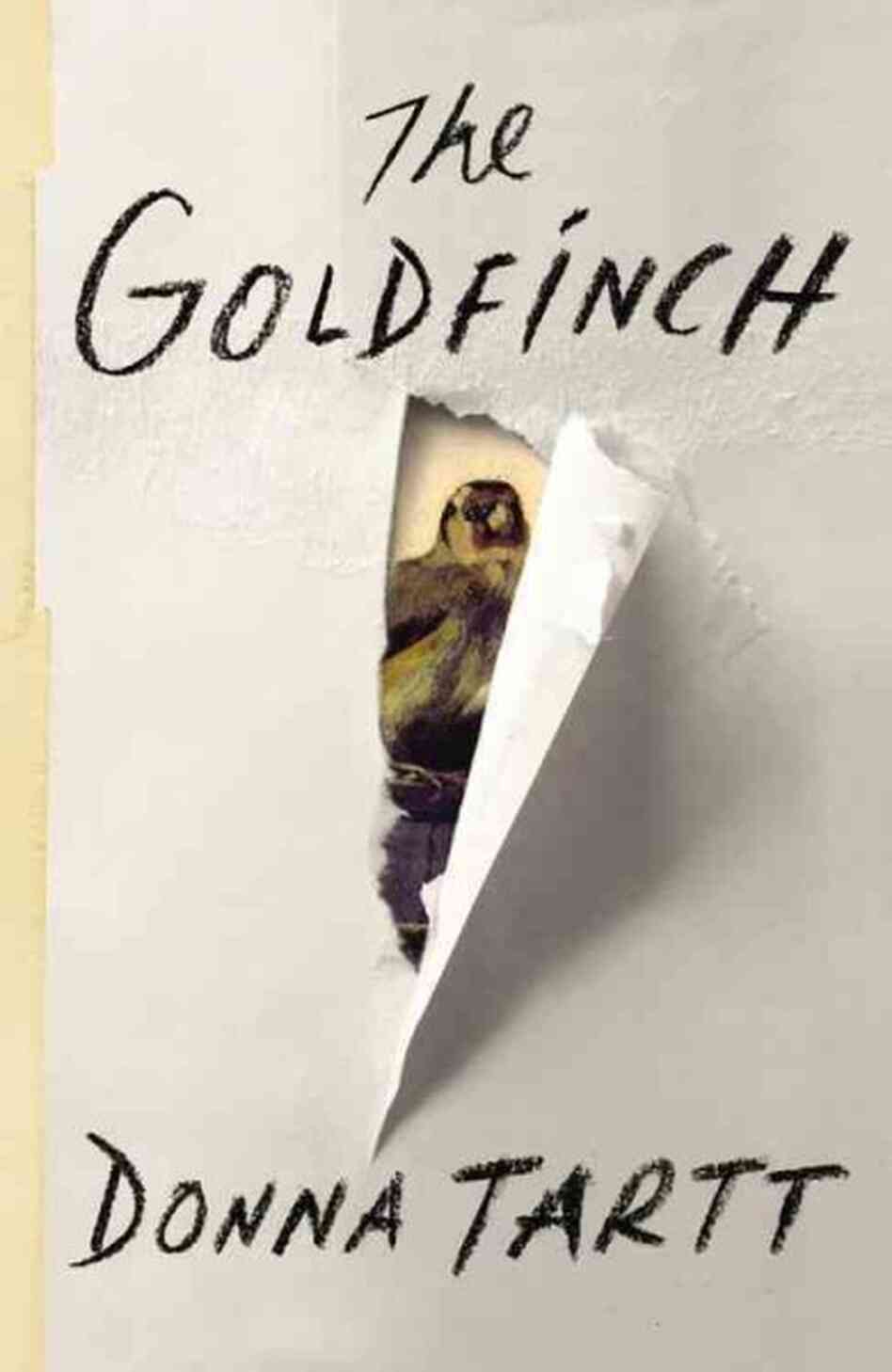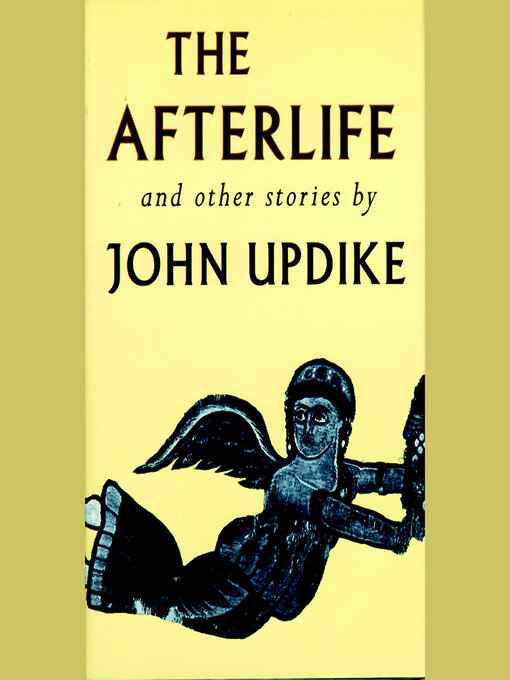Nabokovilia: Less is Lost
Andrew Sean Greer’s delightful Lost had plenty of Nabokovilia, and no surprise to find that the sequel also does. I’ll be updating as I find them, but here’s one for sure:
“…their wrinkles and paunches, when of course they were younger then than he is now, and the time will come, inshallah, when Less will be older still than they are here (you can always count on time for a fancy prose style).”
Nabokovilia in Lauren Groff's Fates and Furies
There are not one but two parenthetical “Picnic, Lightning” nods at Lolita in Lauren Groff’s Fates and Furies, the first of which is
At last she nodded and bussed her tray and left; and as this was her last night at the residency, he wouldn’t see her again. [Her death would be soon and sudden. Ski tumble; embolism.] (135)
The second occurs near the end:
When, a few years later, an attorney contacted her on her phone at the theater where Lotto was helping to cast his new play, she listened intently. Her uncle, the attorney said, had died [carjacking; crowbar]. (329)
Other Lolita nods:
Thoughts of Mathilde had become amagnetic, rebounding off her, spinning outward, ending up hopelessly tangled in thoughts of an Asian nymphet cooing at him in a schoolgirl’s kilt, as fantasies tended to. (127)
She was six feet tall in bobby socks. In heels, her eyes were at his lip line. She looked up at him coolly. (38)
Nabokovilia in Andrew Sean Greer's Less
I’m late to Andrew Sean Greer’s delightful Less and loved everything about it, including its sly Pnin-ish narratorial technique and equally Pnin-ish hapless protagonist, Arthur Less. There were other, more overt Nabokov nods:
Though he was once an endowed chair at Robert’s university, he has no formal training except the drunken, cigarette-filled evenings of his youth, when Robert’s friends gathered and yelled, taunted, and played games with words. As a result, Less feels uncomfortable lecturing. Instead, he re-creates those lost days with his students. Remembering those middle-aged men sitting with a bottle of whiskey, a Norton book of poetry, and scissors, he cuts up a paragraph of Lolita and has the young doctoral students reassemble the text as they desire. In these collages, Humbert Humbert becomes an addled old man rather than a diabolical one, mixing up cocktail ingredients and, instead of confronting the betrayed Charlotte Haze, going back for more ice. He gives them a page of Joyce and a bottle of Wite-Out—and Molly Bloom merely says “Yes.” A game to write a persuasive opening sentence for a book they have never read (this is difficult, as these diligent students have read everything) leads to a chilling start to Woolf’s The Waves: I was too far out in the ocean to hear the lifeguard shouting, “Shark! Shark!”
Here’s another, less overt Nabokov nod:
“I am sorry, I have something in my eye.” Javier’s right eye is now blinking rapidly: a panicked bird. From its outer edge, a rivulet of tears begins to flow.
“Are you okay?”
Javier clenches his teeth and blinks and rubs. “This is so embarrassing. The lenses are new for me, and irritating. They are French.”
Less does not fill in the punch line. He watches Javier and worries. He once read in a novel about a technique for removing a speck from another’s eye: you use the tip of your tongue. But it seems so intimate, more intimate than a kiss, that he cannot even bear to mention it. And, being from a novel, it is possibly an invention.
And here’s the relevant Lolita passage if the bit above is unclear:
Tuesday. Rain. Lake of the Rains. Mamma out shopping. L., I knew, was somewhere quite near. In result of some stealthy manuevering, I came across her in her mother’s bedroom. Prying her left eye open to get rid of a speck of something. Checked frock. Although I do love that intoxicating brown fragrance of hers, I really think she should wash her hair once in a while. For a moment, we were both in the same warm green bath of the mirror that reflected the top of a polar with us in the sky. Held her roughly by the shoulders, then tenderly by the temples, and turned her about. “It’s right here,” she said, “I can feel it.” “Swiss peasant would use the tip of her tongue.” “Lick it out?” “Yeth. Shly try?” “Sure,” she said. Gently I pressed my quivering sting along her rolling salty eyeball.
Nabokovilia in Elif Batuman's The Idiot!
Nabokov's Lectures on Literature shows up in Elif Batuman's The Idiot:
In the bookstore, waiting for Svetlana to finish comparing different editions of Beowulf, I started flipping through Nabokov's Lectures on Literature, and my attention was caught by a passage about math. According to Nabokov, when ancient people first invented arithmetic, it was an artificial system designed to impose order on the world. Over the course of centuries, as the system grew more and more intricate, "mathematics transcended their initial condition and became as it were a natural part of the world to which they had been merely applied... The whole world gradually turned out to be based on numbers, and nobody seems to have been surprised at the queer fact of the outer network becoming an inner skeleton."
Suddenly, all kinds of things I had learned in school seemed to fit together. Could it be true, what Nabokov said -- that the abstract calculations had come first, and only later turned out to describe reality? (109)
Nabokovilia: Martin Amis's "Oktober"
I was carrying a book: the forthcoming “Letters to Véra,” by Véra’s husband, Vladimir Nabokov. But the voices around me were unrelaxingly shrill—I could concentrate on what I was reading, just about, but I could extract no pleasure from it. So I took my drink back into the foyer, where the pianist, after a break, had resumed. The businessman was still on the phone; as before, we were sitting two tables apart, and back to back. Occasionally I heard snatches (“Have you got any office method where you are? Have you?”). But now I was slowly and appreciatively turning the pages, listening to that other voice, V.N.’s: humorous, resilient, full of energy. The letters begin in 1923; two years earlier, he sent his mother a short poem, as proof “that my mood is as radiant as ever. If I live to be a hundred, my spirit will still go around in short trousers.”
When January dawned in 1924, Vladimir (a year older than the century) was in Prague, helping his mother and his two younger sisters settle into their cheap and freezing new apartment. (“Jesus, it’s called basic gumption. Do you know how you spell that?”) These former boyars were now displaced and deracinated—and had “no money at all.” (“5C? No. Obviously. 4C. 4C, for Christ’s sake.”) Vladimir himself, like his future wife, the Judin Véra Slonim, had settled in Berlin, along with almost half a million other Russian fugitives from 1917. And in Berlin the two of them would blithely and stubbornly remain. Their lone child, Dmitri, was born there in 1934. The Nuremberg Laws were passed in September, 1935, and they began to be enforced and expanded after the Berlin Olympics of 1936; but not until 1937 did the Nabokovs hurriedly decamp to France, after a (seemingly never-ending) struggle with visas and exit permits and Nansen passports.
(...)
All ambient sounds suddenly ceased, and the businessman was saying, “D’you know who this is? Do you? It’s Geoffrey. Geoffrey Vane. Geoffrey. Geoff. Yeah. You know me. And you know what I’m like. . . . Right, my patience is at an end. Congratulations. Or, as you’d say, super. . . . Now. Get your fucking Mac and turn to your fucking e-mails. Do you understand me? Do you understand me? Go to the communication from the fucking agent. The on-site agent. You know, that fucking Argy—Feron. Fucking Roddy Feron. Got it? Now bring up the fucking attachment. Got it? Right—fucking 4C.”
Nabokovilia: David Mitchell's Number 9 Dream
A million thanks to Anne Stevens for this awesome bit of Nabokovilia: "On p. 28 of Number 9 Dream by David Mitchell there is a movie poster reading 'The Life and Times of John Shade.'"
Nabokovilia: Rabih Alameddine's An Unnecessary Woman
An observer would receive the wrong impression from this salacious tableau. Their ages were wrong, I thought. Incompatible. Insidious Nabokov insinuated himself into my dreams once more, not allowing me to lose myself in watching what was before me, not allowing me to engage life. Hannah was my Humbert, the lieutenant the ingenue. Fire of my loins. They fucked, no other term can be used. Hannah and her lieutenant fucked and fucked.
(...)
...I won't translate Lolita even though I've always wanted to. It's against the rules. Nabokov's earlier work in rowdy Russian I could. "But in my arms she was always Lolita."
"Lo. Lee. Ta."
My memory has aged into an unruly child but is still quite precocious. (47-8)
Nabokovilia: Jenny Offill's "Dept. of Speculation"
I was going to be an art monster instead. Women almost never become art monsters because art monsters only concern themselves with art, never mundane things. Nabokov didn’t even fold his own umbrella. Vera licked his stamps for him.Quote spotted in these two James Woods New Yorker pieces:
Nabokovilia: Nabokov's Creepy Bathtub in Gibson's Spook Country
He was bouncing along at some insane speed on something that reminded him of a creepy folding rubber bathtub that he'd once seen Vladimir Nabokov posing with in an old photograph. (344)
Nabokovilia: Edward St. Aubyn's Lost for Words
"It's lucky Proust or Nabokov aren't competing this year," said Vanessa, "or Henry James, or Tolstoy, or anyone who sold a novel because word got put that it was worth reading, like Dickens or Thackeray, or..."
"All right, all right," said Jo, "we all know you've read every book under the sun, but I think Malcolm has a very good point. If I had my way I would add, 'No pseuds and no aristos.'" (P. 83)
More on Edward St. Aubyn.
Nabokovilia & Nabokomaybilia: Marisha Pessl's Special Topics in Calamity Physics & Night Film
Marisha Pessl's first novel, Special Topics in Calamity Physics, features a pretty clear case of Nabokovilia:
"You're a sick, sick liar! You're evil!"
I threw Lolita (Nabokov, 1955).
"I hope you die a slow death riddled with unbearable pain!"
Although deflecting the books with his arms, and sometimes legs, Dad didn't stand up or try to restrain me in any way. He remained in his reading chair.
"Get a hold of yourself," he said. "Stop being so melodramatic. This isn't a miniseries on AB --"
I hurled The Heart of the Matter (Greene, 1948) at his stomach, Common Sense (Paine, 1776) at his face. (461)
I'm nearly done reading Pessl's sophomore (and excellent) Night Film, which doesn't have anything quite so clear, though there's a strong possibility of some Nabokovian nods:
She was Beckman's latest housekeeper. Ever since his beloved wife, Véra, had died years ago from cancer, Beckman, totally unable to take care of himself, hired a multitude of petite Russian women to do it for him. (48)And another possible Nabokov nod:
"Need some help?"
"Yes," said Nora, setting a book she'd been leafing through -- Signs, Symbols, & Omens -- back down on the stand. "We were hoping someone could help us identify some herbs and roots that we found in strange patterns in our friend's room." (229)
Nabokovilia: Rebecca Makkai's The Hundred-Year House
"Here's my point: The administration should not be able to access the computers of tenured faculty. Let's imagine you were looking at some Web site of a communist politician, and then you're hauled in front of a committee. When the whole point of tenure is the freedom."
"I'm not tenured."
"You've heard what's happening, I'm sure."
Zee attempted to look bewildered, but he shook his head.
"You hear everything. You know what the deans ate for breakfast. You know when Blum takes a crap. And what I want to know is, when did we become afraid of sex? We ask them to read Lolita and Chaucer, but a nude picture is going to warp their minds? They're adults!" (87)
See also: More Makkai Nabokovilia.
Nabokovilia: Donna Tartt's The Goldfinch
Apart from that, and the door where the blonde had disappeared, the only light came from a lamp which threw a sharp white circle on melted candles, computer cables, empty beer bottles and butane cans, oil pastels boxed and loose, many catalogues raisonnes, books in German and English, including Nabokov's Despair and Heidegger's Being and Time with the cover torn off, sketch books, art books, ashtrays and burnt tinfoil, and a grubby looking pillow where drowsed a gray tabby cat. (574)
Also:
Clearly this Everett ("poor as a churchmouse" -- his phrase) was living off her money, Uncle Welty's money rather, old Europe preying off young America, to use a phrase I'd employed in my Henry James paper in my last semester of school. (463)
Compare to this bit in Nabokov's "On a Book Entitled Lolita":
...an otherwise intelligent reader who flipped through the first part described Lolita as "Old Europe debauching young America," while another saw in it "Young America debauching old Europe."
Bonus bit: Tartt quoting Nabokov on what she wants from awesome books.
Nabokovilia: Rebecca Makkai's The Borrower
They say I'm the most terrific liar they ever saw in their lives. And that one, old lecher-lepidopterist, gabbling grabber, stirring his vodka-pineapple from the high narrow shelf of N-A-B, let me twist his words. (You can always count on a librarian for a derivative prose style): Ladies and gentlemen of the jury, exhibit number one is what I envied, what I thought I could fix. Look at this prison of books. (2)
More Nabokovilia:
(Did he have a predecessor? asks Humbert.
No. No, he didn't. I'd never met anyone like him in my life) (6)
Thus Nabokov lived between Gogol and Hemingway, cradled between the Old World and the New; Willa Cather and Theodore Dreiser and Thomas Hardy were stacked together not for their chronological proximity but because they all reminded me in some way of dryness... (30)
Possible Nabokovilia! (Echoes of the Quilty/Humbert conversations.)
"I'm Glenn," he said. "I'm the penis."
"I'm sorry?"
"The pianist. For tonight." (37)
"Do you pray?"
"I'm sorry?"
"Do you play. Piano." (39)
Lovely bit echoing Lolita's "I am thinking of aurochs and angels, the secret of durable pigments, prophetic sonnets, the refuge of art":
Nabokovilia: John Fowles' Daniel Martin
If I had a preferred line in the modern novel, it was the one that began with Henry James and descended through Virginia Woolf to Nabokov; all, in their different guises, of the confraternity, the secret society, who have known, and known exile, from, la bonne vaux.
We all like to think such personal preference reflects a general criterion, but of course it also, always, stems partly from personal failing -- betrays what we lack, what we long for from and in our lack, what we long for from and in our lack. I made one other note that morning.
If a life is largely made of retreats from reality, its relation must be of retreats from the imagined.
Nabokovilia: Updike's The Afterlife and Other Stories
"Don't make me laugh. I'll get urinary impotence." It was a concept of Nabokov's, out of Pale Fire, that they both had admired, in the days when their courtship had tentatively proceeded through the socially acceptable sharing of books. She managed. In Ireland's great silence of abandonment the tender splashing sound seemed loud. Psshshshblippip. Allenson looked up to see if the hawks were watching. Hawks could read a newspaper, he hand once read, from the height of a mile. But what could they make of it?
Nabokovilia: Michael Chabon
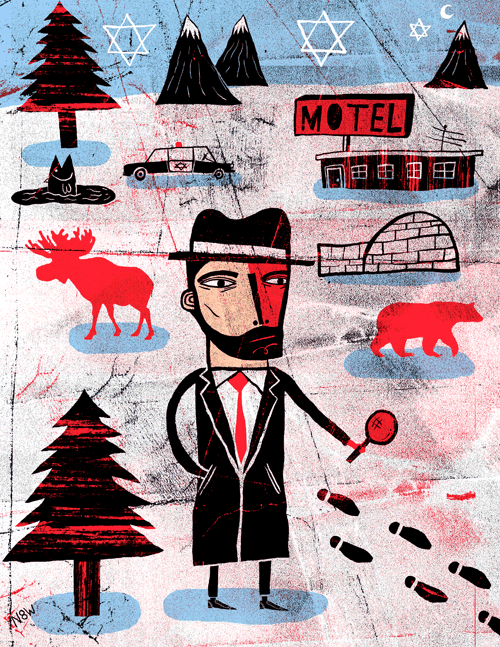
The Yiddish Policemen’s Union (2007)
Afterword: ...the Zugzwang of Mendel Shpilman was devised by Reb Vladimir Nabokov and is presented in Speak, Memory. (p. 418)
The Amazing Adventures of Kavalier & Clay (2000)
Here, in a weird radiance cast by the tails of a thousand writhing glowworms, sits on a barbarous throne a raven-haired giantess with immense green wings, sensuously furred antennae, and a sharp expression. She is, quite obviously, the Cimmerian moth goddess, Lo. We know it before she even opens her rowanberry mouth.
"You?" the goddess says, her feelers wilting in evident dismay. "You are the one the book has chosen? You are to be the next Mistress of the Night?"
Miss [Judy] Dark -- wreathed discreetly now in curling tufts of dry-ice smoke -- concedes that it seems unlikely. (p. 271)
"You have to keep with it," I told him. "You have to read on." I was making the argument I had made to myself, over the years -- to the harsh and unremitting editor who lived in the deepest recesses of my gut. It sounded awfully thin, spoken aloud at last. "It's that kind of a book. Like Ada, you know, or Gravity's Rainbow. It teaches you how to read it as you go along. Or -- Kravnik's." (p. 312)
Additional Chabon/Nabokov material:
- Michael Chabon at the Nabokov Museum (also collected in Maps and Legends)
- Michael Chabon on Wes Anderson
Nabokovilia: Arthur Phillips' The Tragedy of Arthur
A year later, I am writhing to escape this web spun by two dead men, and literary executorship has become the most self-eradicating punishment Dante could have devised for an egotistical author. There was another writer born on my and Will's birthday, a hero of mine, whose son also signed his life over to promoting and protecting his father's works. I think of them both as these two other laughing corpses fling their bolas around my ankles. (187)
*
I wrote to my father, still, from Prague, wrote for him, still. The definition of insanity, the twelve-steppers have patiently taught me, one day at a time, is to do the same thing over and over again expecting a different result. I wrote for him, still. I have now written four novels, and I devised the idea of an anagram for him to decipher over years. The first letters of my titles of my novels are S, P, E, and A. I planned to write, with all my remaining years, books initialed S, H, A, K, E, R, and E, and then, maybe, A, N, D, M, E.
Shakespeare's lines are a nursery of titles for other, better writers: Pale Fire, Exit Ghost, Infinite Jest, Rosencrantz and Guildenstern Are Dead, The Sound and the Fury, Unnatural Acts, The Quick and the Dead, Against the Polack, To Be or Not to Be, Band of Brothers, Casual Slaughters. At the very least, I have never named one of my books after his stuff. (120)
More David Mitchell Nabokovilia: Ghostwritten
Look at her! Look at that woman. Febrile. Corvine. Black velvet clothes, not an ounce of sluttiness about her. Intelligent and alert, what's that book she's reading? And her skin -- that perfect West African black, so black it has a bluish tinge. Those gorgeous, proud lips. What's she reading. Tilt it this way a bit, love... Nabokov! I knew it. She has a brain!
*
Tim sighed. "Sorry, Marco. This is going to be protracted sibling stuff. Why don't you drop in next week after I've had a chance to read this lot? Oh, and I know this is Herod calling Thatcher a bit insensitive but you really need to change your shirt. And there's something white stuck in your hair. And a last word of advice -- I tell this to anyone trying to get a book finished -- steer clear of Nabokov. Nabokov makes anyone feel like a clodhopper.
Nabokovilia in David Mitchell's Cloud Atlas
Speak, Memory. No, not a word. My neck moves. Hallelujah. Timothy Langland Cavendish can command his neck and his name has come home. November 7. I recall a yesterday and see a tomorrow. Time, no arrow, no boomerang, but a concertina. Bedsores. How many days have I lain here? Pass. How old is Tim Cavendish? Fifty? Seventy? A hundred? How can you forget your age? (354)






